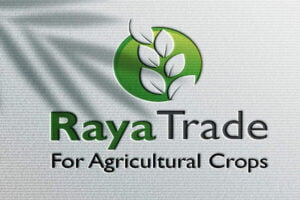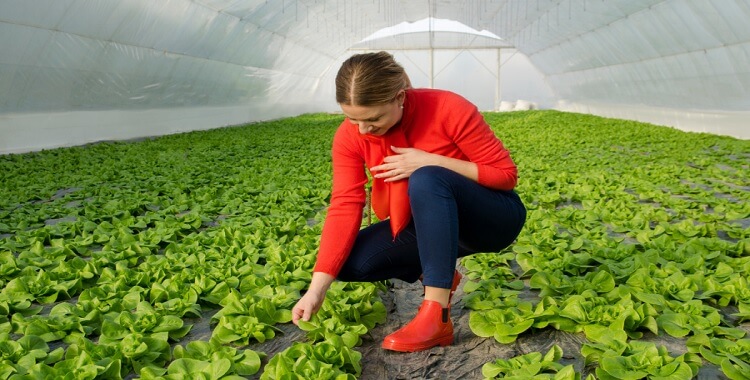The involvement of women in agriculture across Africa and globally has seen a remarkable surge in recent years. As traditional gender roles evolve, more and more women are breaking barriers, becoming entrepreneurs, and playing a significant role in the agricultural sector. If you are an aspiring female farmer looking to make your mark in the agriculture industry, this article is tailored just for you. At Afrikta, we will explore the steps to becoming a successful female farmer, the challenges you may face, and the resources available to support your journey.
1. Women in Agriculture: How to Become a Female Farmer
1.1. Embrace the Power of Knowledge
For embarking on a successful farming journey, it is crucial to equip yourself with knowledge about farming practices, techniques, and market trends. Start by conducting thorough research on the agricultural landscape in your region and the crops or livestock that thrive there. Explore educational opportunities such as agricultural training programs, workshops, and online resources tailored to women in agriculture. Organizations like the African Women in Agriculture Research and Development (AWARD) and the African Women Agribusiness Network (AWAN) offer valuable support and training initiatives.
1.2. Connect and Collaborate
Networking and collaboration play a vital role in the success of any farmer, and female farmers are no exception. Seek out local farming communities, cooperatives, or groups of women that can provide support, knowledge sharing, and potential partnerships. Engaging with experienced farmers and building relationships within the agriculture industry will provide valuable insights and may also lead to mentorship opportunities and access to financing options.
Read Also:
10 Most Profitable Agricultural Business Ideas in Africa
For years, Agriculture has been the source of wealth for many countries globally. It is a very lucrative industry, making it ideal for anyone hoping... Continue Reading →
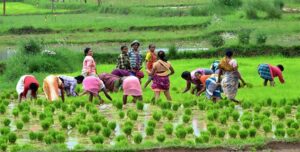
How To Make Agriculture Attractive To Youth
Agricultural and farming works have always been portrayed as unprofitable and hard work jobs for rural and old people. Statistics showed that half the farmers... Continue Reading →
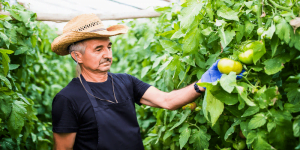
1.3. Access to Land and Resources
Land ownership can be a significant challenge for African women. However, there are various avenues to overcome this barrier. Explore initiatives promoting land rights for women, such as the African Union’s Framework and Guidelines on Land Policy. Additionally, government programs and non-governmental organizations (NGOs) often provide resources, grants for female farmers, and loans to empower specifically women in agriculture. Take advantage of these opportunities to secure access to land, agricultural inputs, and necessary equipment.
1.4. Leverage Technology
In this digital era, technology can revolutionize farming practices and provide valuable support to female farmers. Stay informed about the latest advancements in agricultural technology, such as irrigation systems, weather monitoring tools, and mobile applications that provide market information and farming tips. Embracing technology enhances productivity, facilitates access to markets, and makes your farming venture more profitable and sustainable.
1.5. Marketing and Value Addition
Successfully selling your produce is a crucial aspect of any farming business. Consider value addition by processing your agricultural products to increase their market value. Explore local and international markets, connect with retailers, and consider participating in markets, trade fairs, or establishing direct contact with consumers through community-supported agriculture (CSA) programs. Building a powerful brand and promoting your products through online platforms and social media can also contribute to business growth.
2. The Resources Available to Women Farmers in Africa
There are several resources available to help women farmers in Africa succeed. These include:
2.1. Government Programs
Many African governments have programs available to support women farmers. These programs can help women have access to land, credit, agricultural inputs, and training.
2.2. Non-governmental Organizations (NGOs)
Some NGOs work to support women farmers in Africa. These NGOs can provide women with access to training, technical assistance, and marketing opportunities.
2.3. Microfinance
Multiple microfinance institutions offer farm loans for women allowing them to invest in their businesses. That can help them take the next step to grow their activities.
3. Some Famous Female Farmers in Africa
The African continent is home to some of the most inspiring agribusiness entrepreneurs who have impacted their communities positively. Among them:
Lade Funmilayo Agbato, Nigeria
Lade is a renowned female farmer and CEO of Animal Care Services Konsult Nigeria Limited, established in 1979. The company focuses on animal production, nutrition, and health in Nigeria. Her innovative and entrepreneurial spirit has earned her numerous accolades, including the prestigious Nigerian Order of Merit in Agriculture in 2012. Lady Agbato serves as a role model to women aspiring to excel in business and agriculture in Nigeria.
Martha Fanny Gaisie, Ghana
As a successful agribusiness entrepreneur from Ghana, Martha Fanny is passionate about empowering young women. She provides employment opportunities and trains them in climate-smart agricultural practices, contributing to the progress of the agriculture sector in her community.
Read Also:
Top Agricultural Engineering Firms in Nigeria
Agriculture has always been one of the pillars of Nigeria’s economy. The future of agriculture in Nigeria relies on the collaboration between farmers and agricultural... Continue Reading →

Angus Megan, South Africa
Megan is the proud owner of Woodview Wagyu, a top beef supplier in Africa. Her company was honored for its outstanding work and received an award at the highly respected Roodepoort Chamber of Commerce and Industry (ROCCI) and FNB Business of the Year awards in 2017.
Martha Otieno, Kenya
Also known as the Millionaire Farmer, Martha is a prosperous entrepreneur. She hails from a rural village where farming was the primary source of income for most of the residents. Despite her humble beginnings, Martha has become a successful farmer in Kenya.
Maria Zileni Zaloumis, Zambia
Maria Zileni Zaloumis is a successful female farmer and CEO of Tuzini Farms, a top commercial farming company specializing in growing high-quality tomatoes. She has been featured on reputable platforms like CNN and recognized as Zambia’s Youngest Female Farmer by Syngenta and Omnia, thanks to her dedication and hard work.
Conclusion
Becoming a female farmer is a rewarding and empowering journey. By embracing the power of knowledge, connecting with others, accessing resources, leveraging technology, and implementing effective marketing strategies, you can establish yourself as a successful female farmer, contributing to food security and empowering other women. Despite the challenges, women’s involvement in agriculture continues to grow, and the collective efforts of female farmers across Africa are transforming the agricultural landscape. The path to success may not always be easy, but with determination, passion, and support from the community, you can thrive as a female farmer and make a significant impact.
Discover more on AFRIKTA:
Seedco Botswana
Seedco Botswana has 80 years of experience in the production and supply of certified high-yielding seed varieties bred in Africa for African climatic and geographic... See Full Profile →
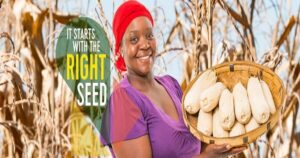
Agravi Burkina
Created in October 2017, AGRAVI-BURKINA is a company that intervenes in Consulting, Agriculture, Agri-food, Engineering, Livestock and Environment. With proven experience in its fields of... See Full Profile →

Fishtec Pty Ltd
Fishtec Pty Ltd is a fishing company that is strategically located in the center of Anse Royale. Its most modern fish processing facilities provide the... See Full Profile →

Raya Trade For Agriculture Crops
Raya Trade For Agriculture Crops based in Egypt is one of the major producers, processors and exporters of Egyptian dried Pulses , grains , herbs,... See Full Profile →
